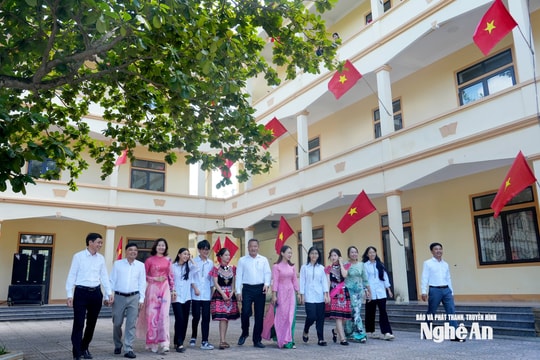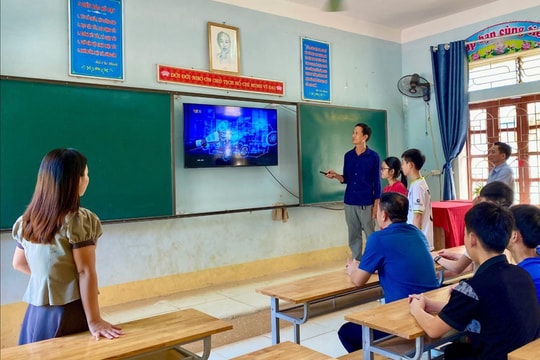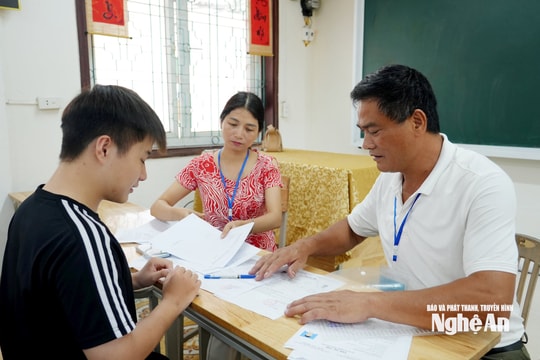Bộ trưởng Bộ Giáo dục và Đào tạo: Không được đặt ra bất cứ rào cản nào với học sinh chuyển trường, chuyển vùng
(Baonghean.vn) - Speaking at the conference, the Minister of Education and Training requested that the entire sector need to look directly at the shortcomings and limitations and continue to accelerate to complete the tasks of the 2023-2024 school year.
On the morning of July 21, in Cua Lo town, the Ministry of Education and Training held a conference to summarize the 2022-2023 school year and deploy tasks for the 2023-2024 school year for high school education and continuing education.
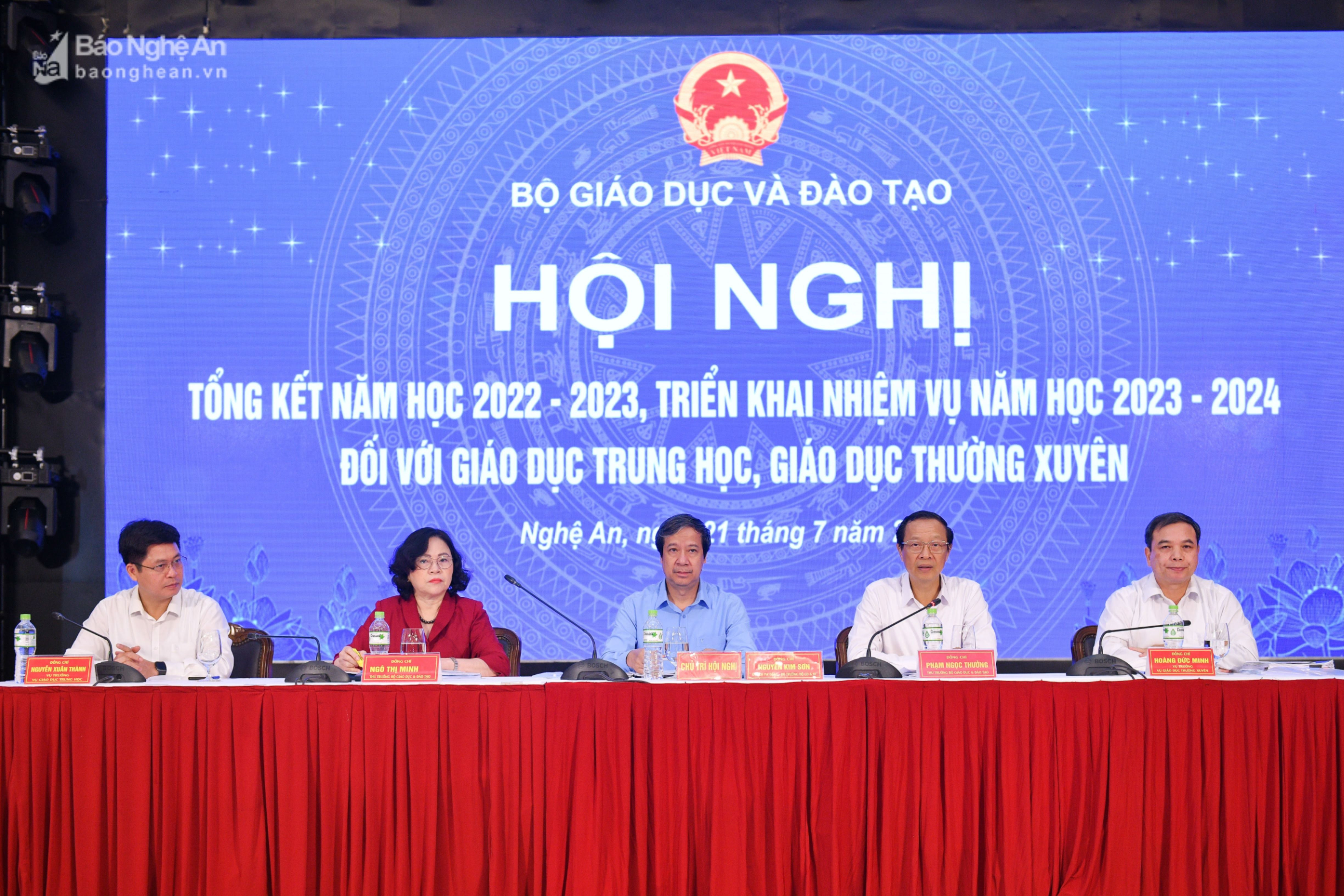
The conference was chaired by comrade Nguyen Kim Son - Member of the Party Central Committee, Minister of Education and Training.
Also attending were Deputy Ministers of Education and Training Pham Ngoc Thuong, Ngo Thi Minh and representatives of departments and offices under the Ministry of Education and Training; representatives of universities; leaders of the Department of Education and Training; leaders and experts of departments under the Department in 63 provinces and cities nationwide.
In the 2022-2023 school year, secondary education and continuing education have set many important goals to continue implementingGeneral Education Program2018 and educational innovation. Through assessment, localities have carefully prepared for implementation, such as organizing training for teachers and managers of core and mass general education institutions; training in textbooks; organizing professional activities...
The Departments of Education and Training have also actively directed the implementation of Project 522 and carried out career guidance education in the 2018 General Education Program, such as advising students in choosing subject combinations at high school level...
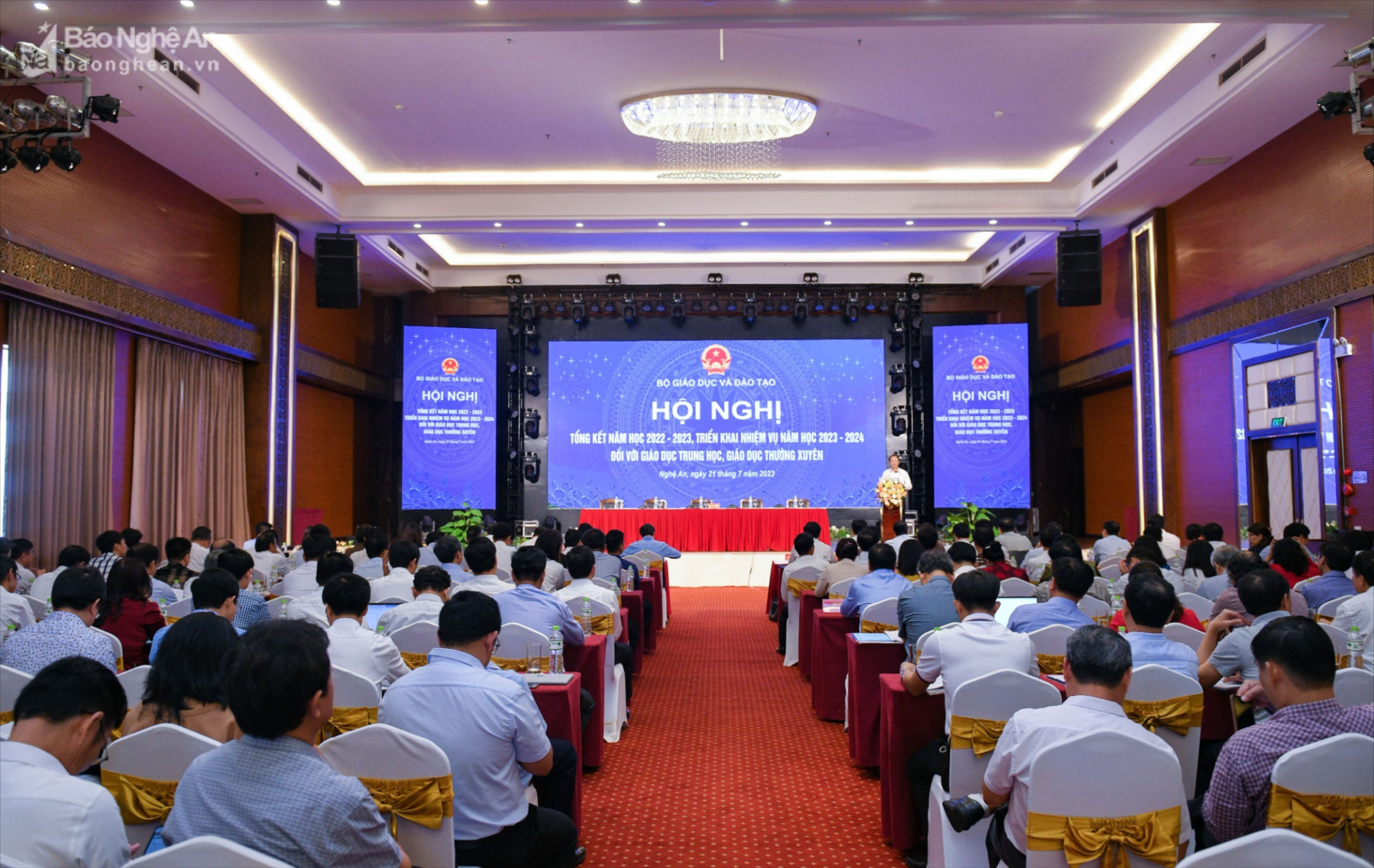
In addition, the Departments of Education and Training have proactively organized many forms to encourage teachers to innovate teaching methods such as digital teaching equipment design competitions, organizing seminars to improve teaching and learning quality, organizing training for teacher managers on STEM education activities, experiential activities, career guidance, implementing creative teaching sessions, and inter-school professional activities.
However, in the process of implementing the school year's tasks, there are still shortcomings and inadequacies such as: The teaching staff is still lacking, not uniform in structure, especially for teachers teaching new subjects in the 2018 General Education Program such as Natural Sciences, experiential activities, career guidance, etc. High school level has few teachers teaching Music and Fine Arts; the ratio of teachers in the class is not enough according to regulations. Changing subjects or transferring schools is more difficult than for students studying under the 2006 General Education Program. Career guidance and streaming have not yet achieved the set goals.
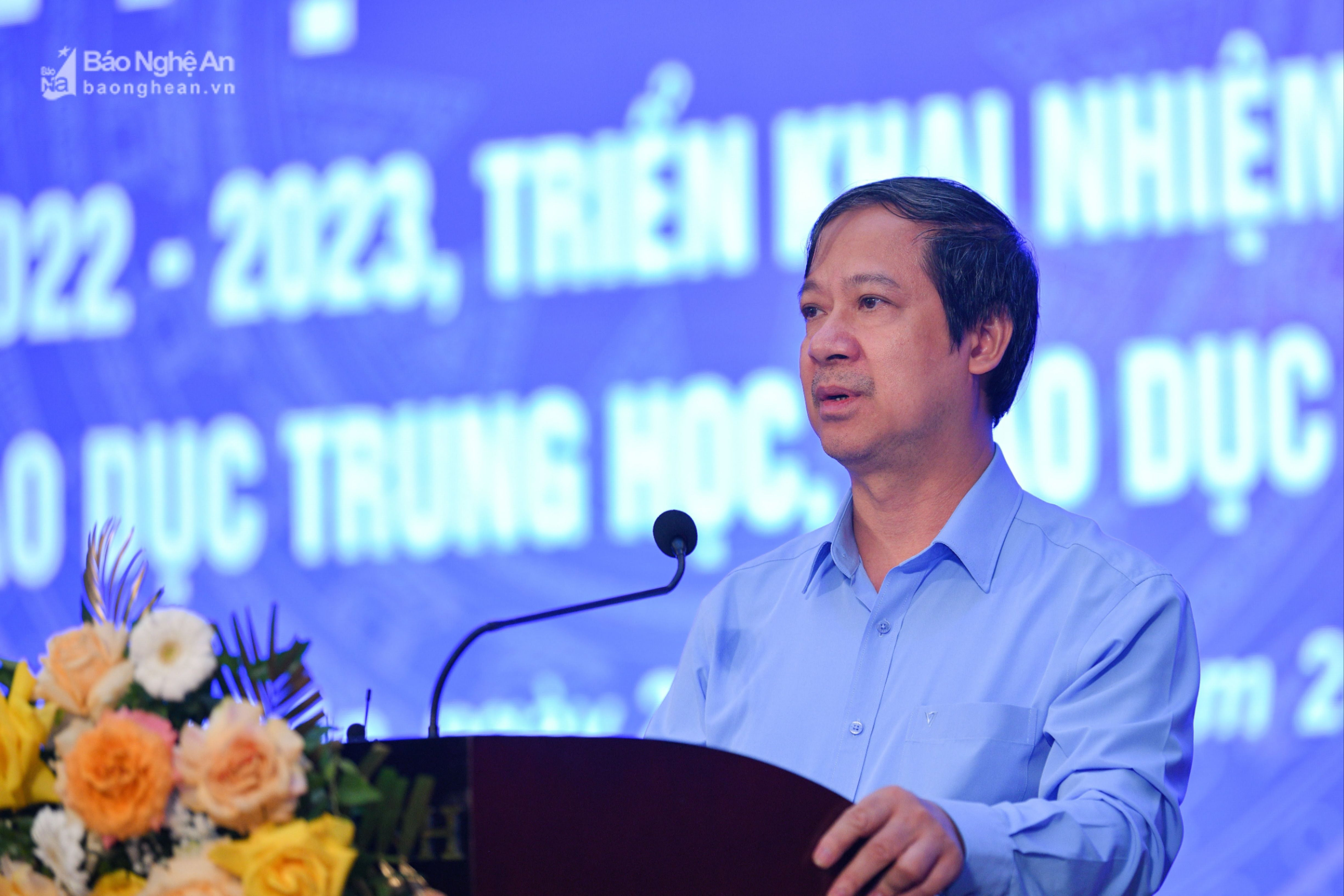
At the conference, delegates from the Departments of Education and Training also made many statements about the implementation of professional tasks. In particular, focusing on analyzing the shortcomings at the grassroots level such as: Need to be flexible in arranging class sizes for the implementation of elective subjects at high school level, need to pay attention and have incentive policies for continuing education, difficulties in calculating points for teachers in experiential lessons, teaching and learning English in schools, local education programs are difficult to implement on schedule...
Speaking at the conference, Minister of Education and Training Nguyen Kim Son once again reiterated the theme of the 2023-2024 school year. At the same time, he affirmed that in the process of general education reform, the next school year is a year of special significance, an accelerated school year.
The results of the next school year will also affect the results of the implementation of the new General Education Program. According to the plan, this school year, the whole sector will implement the new program for 9 classes (including grades 1, 2, 3, 4, 6, 7, 8, 10, 11) and prepare for the remaining 3 classes (grades 5, 9, 12).
With many important tasks, the Minister of Education and Training suggested that the whole sector needs to frankly acknowledge the existing problems and difficulties and propose solutions in the coming time. That is, it is necessary to actively strengthen the innovation of teaching methods, support and solve teachers' problems in the teaching and learning process, not leaving it to the districts and counties.
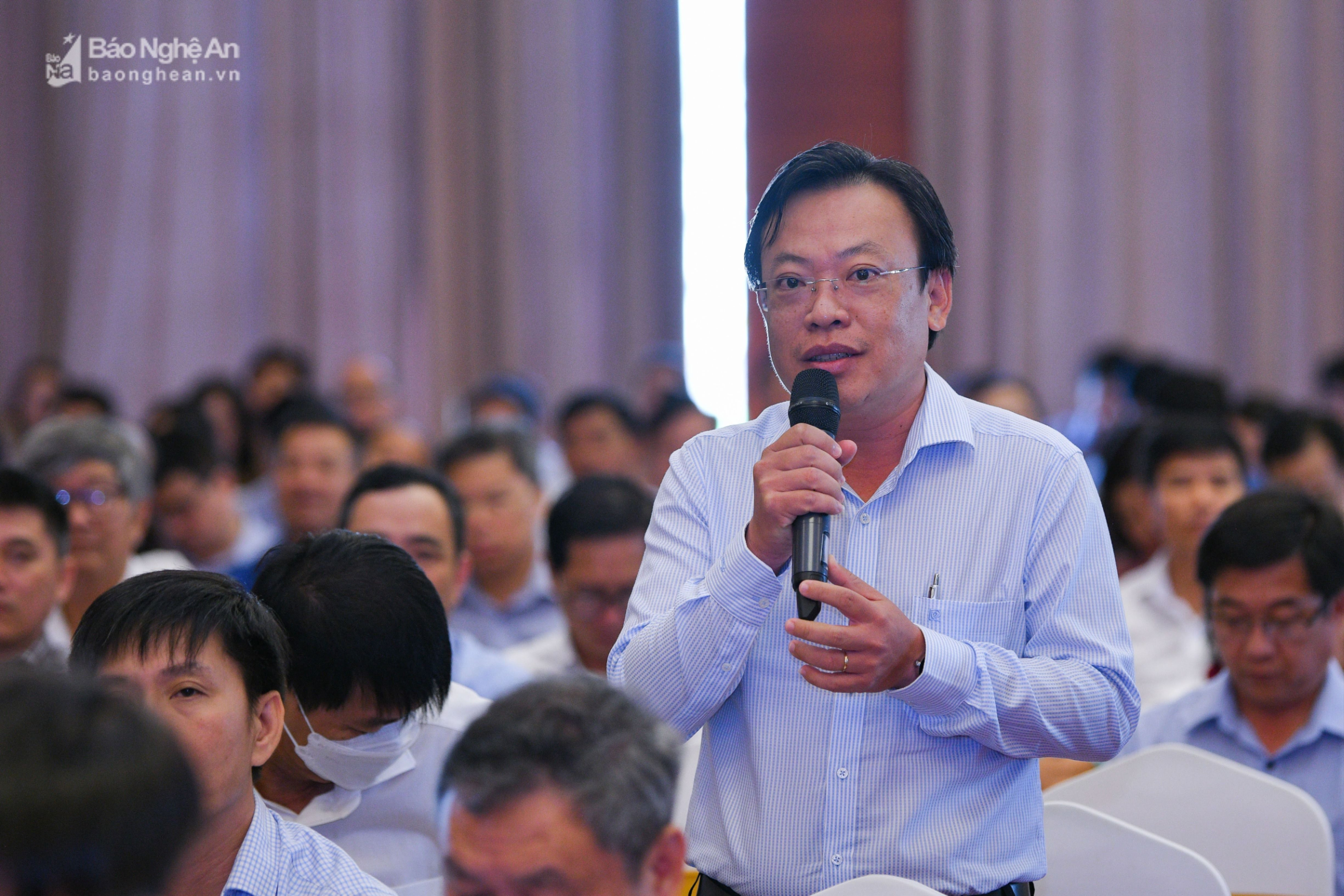
Regarding some problems that localities are proposing such as confusion for students transferring schools and regions, Minister Nguyen Kim Son said that, in principle, no barriers should be set for students transferring schools or regions, even if there are differences in some subject combinations. The responsibility of schools when accepting students is to help students supplement the knowledge they lack.
Some provinces and cities are concerned about the criteria of 45 students/secondary school and 35 students/primary school. The Minister explained that these are quality standards and must be implemented in accordance with prescribed documents.
Regarding continuing education, the Minister suggested that localities, departments and branches should not consider this as a second-class education but should implement innovation in a synchronous manner. Accordingly, it is necessary to pay attention to facilities and teaching staff, and set key tasks for each school year. Localities also need to re-evaluate the continuing education model, especially the way of operation and investment.
In the 2022-2023 school year, Nghe An Education sector continued to advise on policy mechanisms, strengthen conditions for implementing programs at all levels and achieved some outstanding results.
That is, educational models have been deployed and initially achieved results such as the model of ensuring the quality of general education to help educational institutions manage input, output, and teaching activities; pilot school models, key school models to promote the core role, pioneering in innovation; piloting advanced school models following the international integration trend, so that educational institutions can develop educational plans approaching advanced programs to develop global skills for students associated with the 2018 General Education Program, piloting a new model of ethnic minority boarding schools with 18 criteria to build appropriate mechanisms and policies; developing educational plans suitable to the characteristics of the school to effectively implement the 2018 General Education Program associated with improving the quality of education in mountainous and ethnic areas. The quality of universal lower secondary education has been improved (the rate of communes and districts reaching level 3 has increased). The rate of schools meeting national standards exceeded the target of the school year and nearly reached the rate according to the Resolution of the Provincial Party Congress for the 2020-2025 term at 75.66%.
Thanks to that, the quality of education continues to be maintained and developed. Key education continues to be in the top of the country.

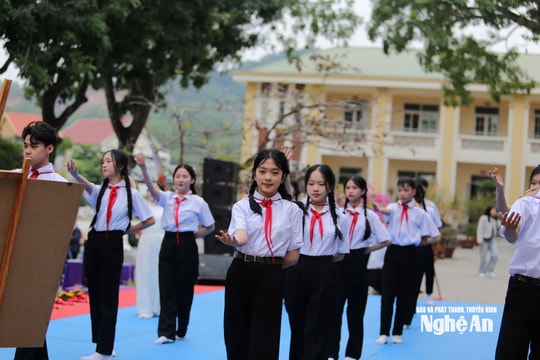
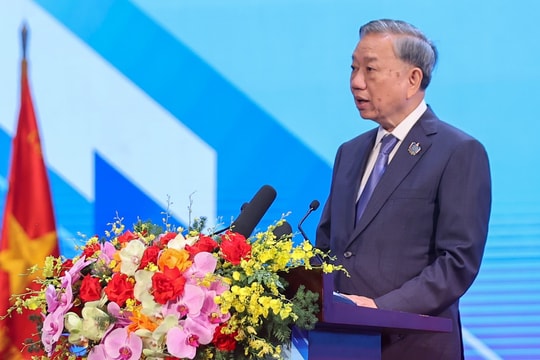
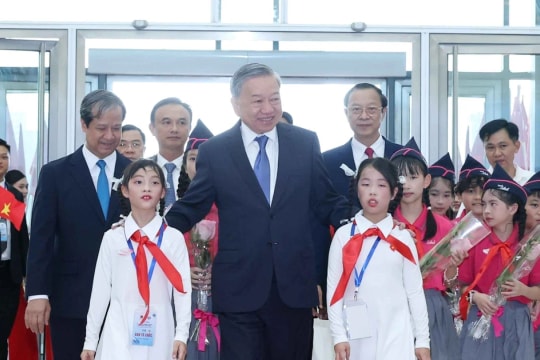
.jpg)
